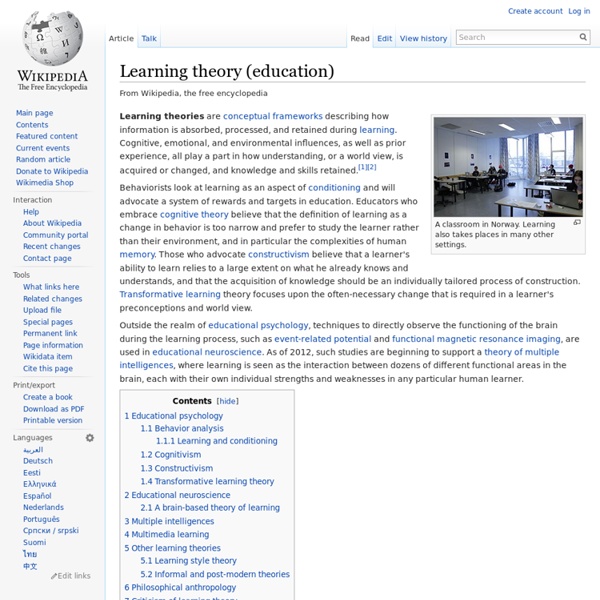Learning theory (education)

Start Your Day in 33 Different Ways
Mornings are underrated. I consider them fundamental for the whole diurnal experience. What you do in the very first moments of your morning will fundamentally and inexorably shape your entire day. Most of the time you spend your mornings by routinely performing some habits, on auto pilot. Consciously inserting your intentions in these very first moments will have a huge effect. Here are at least 33 ways in which you can transform your days by only spending 5 minutes every morning. 1. I love the morning stillness and the unspoken promise of something ready to start. 2. And do nothing. 3. Point your mind to something you’re really grateful for and stay there. 4. Regardless of the current season. 5. You’re going to spot it pretty easily if you put your mind to it. 6. Write an answer to an old question, do part of a small chore, move an object out of somebody’s way. 7. Empty your mind and isolate from your environment. 8. 9. Like in getting physical. 10. 11. Let go. 12. 13. 14. 15. 16.
20 Super Brain Foods « Zen
We know that the foods we eat affect the body but they can have even more influence on how well our brain functions. What we eat can have a POWERFUL affect on our brain’s energy, how the mind handles tasks, and our general mood. Our focus here is on those particular nutrients found in foods that enhance neuron firing and cross-linking in the brain. The foods listed below can help you: concentrate, increase memory, tune sensorimotor skills, keep you motivated, speed up your reaction time, control stress, and even slow down the aging of brain cells! So here is a list of 20 different food types that we can add to our diet, their effects, and how they function: 1. Whole grain is a great brain stimulator because it contains high percentage of folate. Wholegrain breads and cereals are rich in Vitamin B6, an important brain vitamin. Nuts 2. Both literally and figuratively speaking, walnuts are “brain food”. Omega 3 fatty acids found in walnuts are especially helpful in brain function. 3. 4. 5.
Related:
Related:



